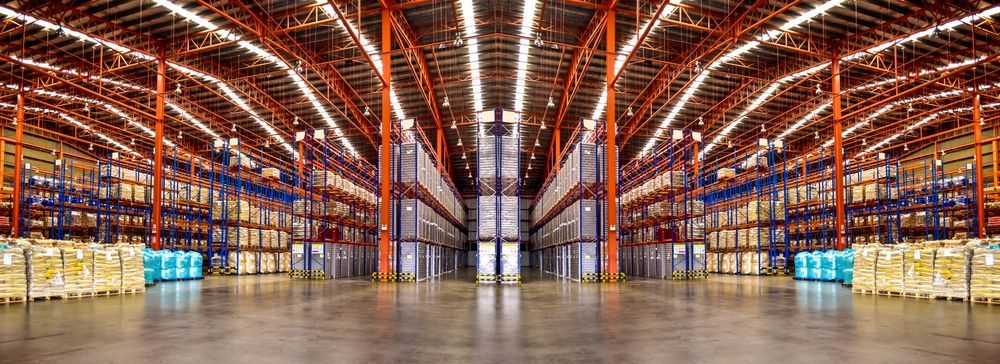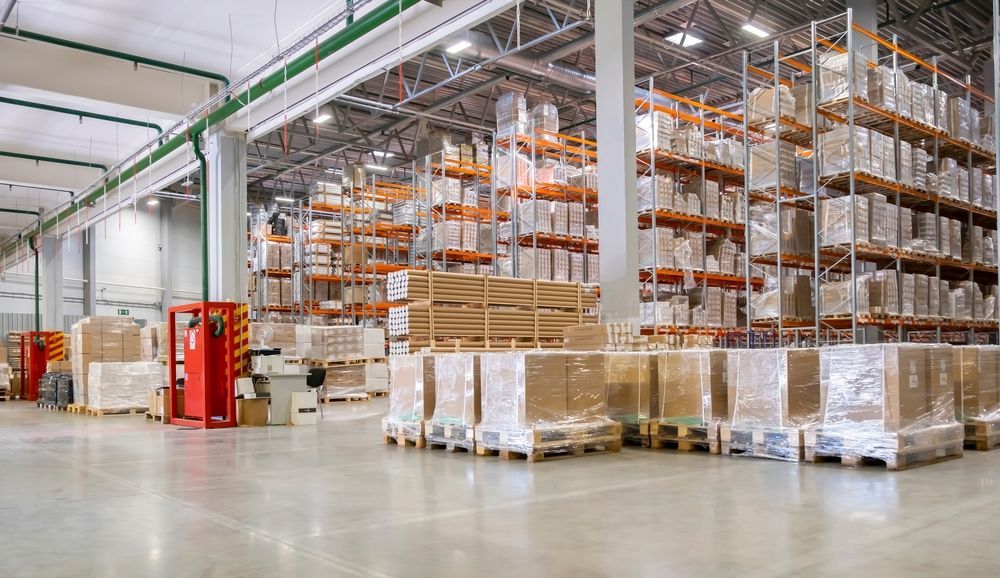Wholesaler Insurance in California
Index
Understanding Wholesalers Insurance
The Basics of Wholesalers Insurance in California
Choosing the Right Wholesalers Insurance Policy
The Cost of Wholesalers Insurance in California
Filing a Claim with Your Wholesalers Insurance
Contact Us
Phone
886-226-4436
Location
9340 Bolsa Ave, Westminster, CA 92683
As a wholesaler operating in California, it is crucial to understand the importance of having
adequate insurance coverage. Wholesalers Insurance provides protection for your business against various risks and liabilities that you may encounter in your day-to-day operations. This article will provide a comprehensive overview of Wholesalers Insurance in California, covering its definition, importance, regulations, coverage options, factors to consider when choosing a policy, cost factors, ways to lower premiums, and how to file a claim.
Understanding Wholesalers Insurance
Wholesalers Insurance is a specialized type of commercial insurance designed to protect wholesalers from financial losses due to unforeseen events and risks that are inherent to their unique business operations. It provides coverage for property damage, liability claims, business interruption, product liability, and many other potential risks.
Wholesalers Insurance is essential for businesses operating in the wholesale industry. As wholesalers deal with large quantities of goods and have complex supply chains, they are exposed to various risks that can disrupt their operations and lead to significant financial losses. Without proper insurance coverage, wholesalers may find themselves vulnerable to unexpected events that could have a detrimental impact on their business.
One of the key aspects of Wholesalers Insurance is its coverage for property damage. Wholesalers often have extensive warehouses and storage facilities where they store their inventory. These properties are susceptible to risks such as fire, theft, natural disasters, and vandalism. With Wholesalers Insurance, wholesalers can protect their physical assets and ensure that they can recover financially in the event of property damage.
Liability claims are another area where Wholesalers Insurance plays a crucial role. Wholesalers may face lawsuits or legal claims from customers, suppliers, or other third parties due to various reasons, such as defective products, injuries caused by their goods, or contractual disputes. Wholesalers Insurance provides liability coverage, which helps protect businesses from the financial burden of legal expenses, settlements, or judgments.
Business interruption is a significant concern for wholesalers. Any disruption to their operations, such as a fire, natural disaster, or equipment breakdown, can lead to a halt in production, delayed deliveries, and loss of revenue. Wholesalers Insurance includes coverage for business interruption, which provides financial support to cover ongoing expenses, lost profits, and the costs of relocating or rebuilding after a covered event.
Product liability is another critical aspect of Wholesalers Insurance. Wholesalers are responsible for the products they distribute, and if any of those products cause harm or injury to consumers, the wholesalers may be held liable. Wholesalers Insurance offers product liability coverage, which protects businesses from the financial consequences of product-related lawsuits and claims.
In conclusion, Wholesalers Insurance is vital for safeguarding wholesalers from the various risks and uncertainties they face in their business operations. It provides comprehensive coverage for property damage, liability claims, business interruption, and product liability, among other potential risks. By having proper insurance coverage, wholesalers can protect their
financial stability and ensure the continuity of their operations even in the face of unexpected events.
The Basics of Wholesalers Insurance in California
When it comes to running a wholesale business in California, there are specific insurance regulations that you need to be aware of. These regulations are in place to ensure that your business operates within the legal framework, protecting both you and your clients. It is essential to comply with these regulations to avoid penalties or legal complications that could potentially harm your business.
Consulting with a qualified insurance professional is highly recommended when navigating the intricacies of California's insurance regulations for wholesalers. They can provide you with expert guidance and help you understand the specific requirements that apply to your business.
California's Insurance Regulations for Wholesalers
California has a robust set of insurance regulations in place to safeguard the interests of wholesalers and their clients. These regulations cover various aspects of insurance, including licensing, policy requirements, and compliance. By understanding and adhering to these regulations, you can ensure that your business remains in good standing and operates ethically.
One of the key regulations wholesalers need to be aware of is the requirement for proper licensing. In California, wholesalers must obtain the necessary licenses to operate legally. These licenses demonstrate that you have met the state's requirements and have the knowledge and expertise to provide insurance services to your clients.
Additionally, wholesalers must comply with specific policy requirements set by the state. These requirements may include minimum coverage limits, documentation standards, and reporting obligations. By meeting these requirements, you can ensure that your insurance policies provide adequate protection to your clients and meet the state's standards.
It is worth noting that California's insurance regulations are subject to change and updates. Staying informed about any new developments or amendments is crucial to maintaining compliance. Regularly consulting with an insurance professional can help you stay up-to-date with any changes and ensure that your business remains on the right side of the law.
Types of Coverage Available
Wholesalers insurance policies offer a range of coverage options to cater to the specific needs of businesses operating in this industry. Understanding these coverage options and selecting the right ones for your business is essential to protect your assets and mitigate potential risks.
One common type of coverage available for wholesalers is property insurance. This coverage protects your physical assets, such as your warehouse, inventory, and equipment, from various risks, including fire, theft, and natural disasters. Having adequate property insurance ensures that your business can recover quickly in the event of a covered loss.
Liability insurance is another crucial coverage option for wholesalers. It protects your business from claims and lawsuits arising from third-party injuries or property damage caused by your products or operations. With liability insurance, you can have peace of mind knowing that your business is financially protected in case of unforeseen accidents or incidents.
Business interruption insurance is designed to provide coverage for the loss of income and additional expenses that may arise when your business operations are disrupted due to a covered event, such as a fire or natural disaster. This coverage can help you stay afloat during challenging times and ensure that your business can recover and resume operations as quickly as possible.
Workers' compensation insurance is a legal requirement in California for businesses with employees. This coverage provides benefits to employees who suffer work-related injuries or illnesses. By having workers' compensation insurance, you can fulfill your legal obligations and provide financial support to your employees in case of unfortunate incidents.
Lastly, product liability insurance is essential for wholesalers who deal with physical products. This coverage protects your business from claims and lawsuits arising from injuries or damages caused by your products. It provides financial protection in case a defective product causes harm to a consumer, helping you avoid significant financial losses and legal complications.
Assessing your business's unique risks and working with an insurance professional can help you tailor your insurance policy to meet your specific needs. They can guide you in selecting the right coverage options, determining appropriate coverage limits, and ensuring that your policy adequately addresses the risks your business faces.
Choosing the Right Wholesalers Insurance Policy
When it comes to protecting your wholesale business, selecting the right insurance policy is crucial. With so many options available, it can be overwhelming to determine which policy is best suited for your specific needs. However, by considering a few key factors and thoroughly understanding the terms and conditions of each policy, you can make an informed decision that will provide you with the most suitable coverage.
Factors to Consider
Before diving into the world of insurance policies, take some time to evaluate the specific risks that your wholesale business faces. Each industry has its own unique set of risks, and understanding these risks is essential in determining the coverage you require. Are you dealing with valuable and fragile goods that require special protection? Or perhaps you have a large warehouse that needs coverage for potential property damage or theft. By identifying these risks, you can ensure that the policy you choose adequately addresses them.
Another important factor to consider is the coverage limits and deductibles offered by each insurance provider. It's crucial to strike a balance between adequate coverage and affordable premiums. While it may be tempting to opt for a policy with low premiums, it's important to carefully evaluate whether the coverage limits and deductibles align with your business's needs. In the event of a claim, insufficient coverage could lead to significant financial losses.
Additionally, it's essential to review the reputation and financial stability of the insurance provider. A reputable and financially stable insurer will give you peace of mind, knowing that they have the resources to handle any claims you may have. Research the insurer's track record, customer reviews, and financial ratings to ensure that they are reliable and trustworthy.
Lastly, don't forget to compare quotes from multiple insurers. While it may be tempting to go with the first policy that catches your eye, taking the time to shop around can save you money in the long run. Obtain quotes from different insurers and carefully compare the coverage, limits, deductibles, and premiums offered. This will help you make an informed decision and secure the most suitable coverage for your wholesale business.
Understanding Policy Terms and Conditions
Once you have narrowed down your options and are ready to make a decision, it's crucial to thoroughly review the terms and conditions of your chosen wholesaler insurance policy. This step is often overlooked but is essential in ensuring that you fully understand what is covered, what is excluded, the limits of coverage, and any policy endorsements or add-ons.
By carefully reviewing the policy terms and conditions, you can avoid any surprises or misunderstandings in the future. Take note of any exclusions that may leave you vulnerable to certain risks. For example, if your policy excludes coverage for natural disasters, you may want to consider additional coverage to protect your business in the event of a hurricane or earthquake.
If you come across any terms or conditions that are unclear or confusing, don't hesitate to reach out to the insurance provider for clarification. It's important to have a clear understanding of your coverage to ensure that you are adequately protected.
Ultimately, choosing the right wholesaler insurance policy requires careful consideration of various factors and a thorough understanding of the policy terms and conditions. By taking the time to evaluate your business's specific risks, comparing quotes, and reviewing the fine print, you can make an informed decision that will provide you with the peace of mind and protection your wholesale business needs.
The Cost of Wholesalers Insurance in California
Factors Influencing the Cost
Several factors influence the cost of wholesaler insurance in California. These include the size and scope of your business, the nature of your operations, your claims history, the coverage options you choose, and the deductibles and limits you select. Insurance providers also consider the overall risk profile of your business when determining the price of your policy.
Ways to Lower Your Insurance Premiums
It is possible to reduce your insurance premiums without compromising on coverage. Implementing risk management strategies, maintaining a clean claims history, bundling multiple policies with the same insurer, and increasing your deductibles are all effective ways to potentially lower your insurance premiums. Consult with your insurance provider to explore possible cost-saving measures.
Filing a Claim with Your Wholesalers Insurance
When and How to File a Claim
In the event of an incident or loss covered by your wholesalers insurance policy, it is crucial to promptly file a claim. Contact your insurance provider as soon as possible, provide all necessary details and documentation to support your claim, and comply with any additional requirements or procedures stipulated by your insurer.
What to Expect During the Claims Process
When you file a claim, your insurance provider will assess the validity and extent of the loss or damage. They may conduct investigations or request additional information. Once the claim is evaluated and approved, you will receive compensation according to the terms and conditions of your policy. Be prepared to cooperate and provide any necessary assistance during the claims process.
By understanding the ins and outs of Wholesalers Insurance and adhering to California's specific regulations, you can adequately protect your business from unexpected risks and liabilities. Choose a policy that suits your business needs, explore options to reduce costs, and be prepared to navigate the claims process smoothly. Remember, having comprehensive insurance coverage is an investment in the longevity and security of your wholesale business.
What is the difference between an MGA and a wholesaler?
The difference between an MGA (Managing General Agent) and a wholesaler in the insurance industry lies in their roles and responsibilities:
MGA (Managing General Agent):
- Role: An MGA is an intermediary between insurers and retail agents. It has the authority to manage specific aspects of an insurance program, including underwriting, pricing, claims handling, and issuing policies.
- Authority: MGAs often have binding authority from insurers, meaning they can make decisions about policy issuance, underwriting terms, and pricing on behalf of the insurer.
- Responsibilities: MGAs typically have specialized knowledge and expertise in certain types of insurance and are responsible for managing and administering insurance policies on behalf of insurers. They act almost like an extension of the insurer but in a more specialized capacity.
- Wholesaler
- Role: A wholesaler in insurance is an intermediary that works with retail agents and brokers to find appropriate insurance products for their clients. They don't have underwriting authority or the same level of decision-making power as an MGA.
- Authority: Wholesalers do not have binding authority over policies. They work with multiple insurers to provide products to agents but cannot make decisions on underwriting or pricing.
- Responsibilities: Wholesalers connect retail agents with insurers, provide support, and assist in placing difficult or specialized insurance risks. They typically deal with a range of carriers and provide access to markets that a retail agent may not be able to reach directly.
Is workers' compensation insurance mandatory for wholesalers in California?
Yes, California law requires all businesses with one or more employees to carry workers' compensation insurance. This coverage provides medical benefits and wage replacement to employees injured in the course of employment.
How can wholesalers protect against inventory loss during transit?
Transit Business Income Insurance helps cover losses from business interruptions if damage occurs while property is in transit.
How can wholesalers assess their specific insurance needs?
It's advisable to conduct a thorough risk assessment of your operations, considering factors like inventory value, distribution methods, and potential liabilities. Collaborating with an insurance professional experienced in the wholesale sector can help tailor a policy that aligns with your unique requirements.






